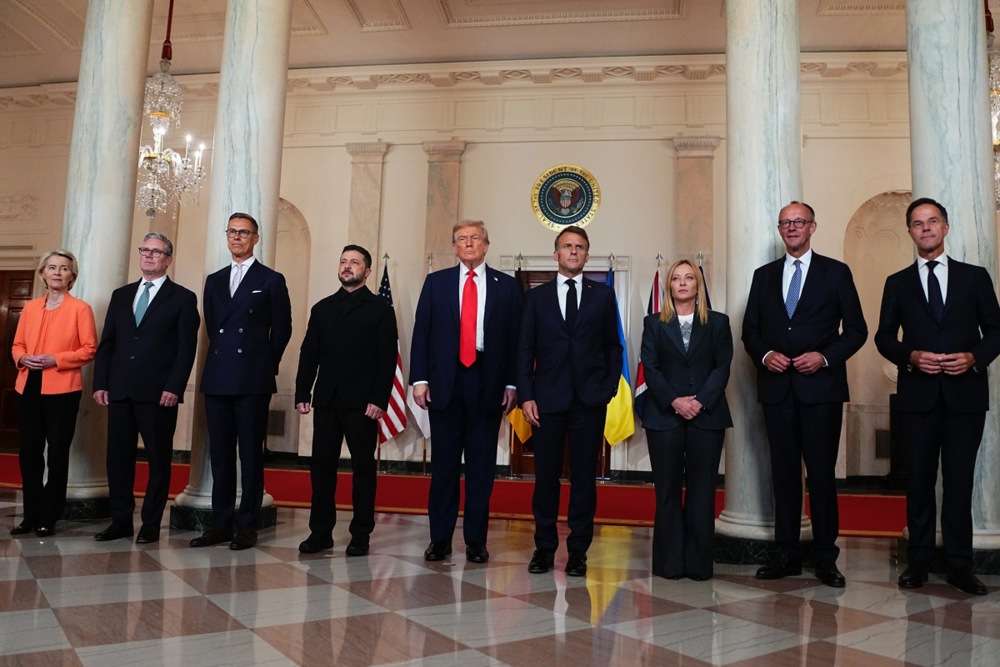The European Commission has not had the best year. It started off with the man they all hoped would go away, Donald Trump, returning to the American presidency. They then became entangled in a massive debate over how many regulations to cut – regulations they had only just put into effect a few years ago. Then, Trump launched a trade war that ultimately forced them to agree to a humiliating, one-sided trade deal which keeps America’s tariffs and will see all the EU’s tariffs ended.
This likely explains the Commission’s announcement last week of a nearly €3 billion fine against Google for abusive practices. Specifically, the European Union found that the company was giving unfair advantage to its own advertising placement services (advertising is extremely lucrative for the platform) and made clear that the only way to avoid the fine would be for Google to sell off its advertising services.
How the Commission reached the fine total (specifically €2.95 billion) is hazy: The guidelines purport to lay out a specific formula, but in reality allow them to levy whatever they feel like, leaving the exact process unknown.
What is not unknown, however, is the response from the American government. Google is an American company, after all, and the American president – Europe’s favourite – was rather upset. President Trump wrote that the fine was “taking money that would otherwise go to American investments and jobs,” adding that it was “very unfair” and that he would “not allow these discriminatory actions to stand.” Trump also wrote that he was considering responding with a Section 301 action, which allows the executive branch to effectively charge Europe for what it deems are unfair practices. It also allows the president to terminate any trade agreements, which could include the recent US-EU trade agreement.
All of this, on the surface, sounds great for Europe. After all, the agreement is extremely unpopular: One survey found that around six out of ten EU citizens are “favourable” to the idea of Commission President Ursula von der Leyen resigning over the deal and slightly over half feel “humiliated” by it. One would think that this Google penalty would be the way out for the Commission: T”hey could let Trump rip up the deal, sound like they are taking a stand against America, throw their international weight around, and show the world that their tangled mass of laws actually have some meaning.
But in the words of President Trump, “Sounds good, doesn’t work.”
Let’s start with the obvious: Google was almost certainly violating Europe’s antitrust laws. They were absolutely violating America’s. The Trump administration, in fact, recently won a court case in the United States over the exact same antitrust violation (“monopolizing open-web digital advertising markets”), though the judge’s ruling in that case was less than what some antitrust advocates hoped, and stopped short of forcing Google to break itself up.
However, it is political malfeasance for Europe to have acted on this now because, as Trump also once said, they “don’t have the cards”. Von der Leyen is not a brilliant politician, but she is not a fool: She agreed to the deal because it likely is the only deal that Europe could agree to. Trump can unilaterally (barring a coming Supreme Court decision) impose tariffs to basically any level he wishes. Europe’s tariff process is complex and fraught, needing to be found acceptable by 27 different member states, many of whom have immense reason to fear a trade war with the United States. They have locked themselves out of trade with Russia and cannot trust China. The bloc cannot even manage to get a trade agreement with South America over internal opposition from Hungary, France, and more member states.
In short, they simply cannot compete with America in a trade war. This is a fact that has not been made clear to average non-politically obsessed Europeans, but it is abundantly clear to their leaders – which is why the deal was agreed to.
But their negativity toward the deal likely required von der Leyen – who again, is not a very skilled politician, having failed upwards into her job (one previous European Parliamentary president called her Europe’s “weakest minister”) – to show some backbone. So she decided to do so with a slap on Google, possibly guessing that Trump – whose administration is trying to increase domestic antitrust funding to the tune of over $100 million (€85 million) – would support her actions.
She miscalculated. Why? Because von der Leyen is a technocrat who thinks like one. In her mind, this move made sense: The trade deal was fundamentally different situation from this case, meaning there would be no reason for Trump to link them. Trump, as an antitrust president, would probably see things the same.
However Trump is no technocrat. He is a nationalist. Which means even if he thinks Google is a monopoly, he will never let Europe slap around an American company, particularly when his administration is still deciding whether or not to appeal the case.
And this puts her, and Europe, in a bind: She can try to make the Commission seem tough, but ultimately simply does not have the strength to compete with what Trump and America can do. She cannot really throw her weight around, as Europe does not have any way to do that without getting smacked hard, as they cannot risk a true and sustained trade war with the United States.
There were alternatives. The Commission could have spoken with the Trump administration ahead of time. They could have at least waited to see if Trump would continue to prosecute Google. But instead, they charged ahead, seeking to be heroes.
But the result was incompetent technocracy – which is far from heroic.





Looming budget crises means the Right needs more than just immigration policy